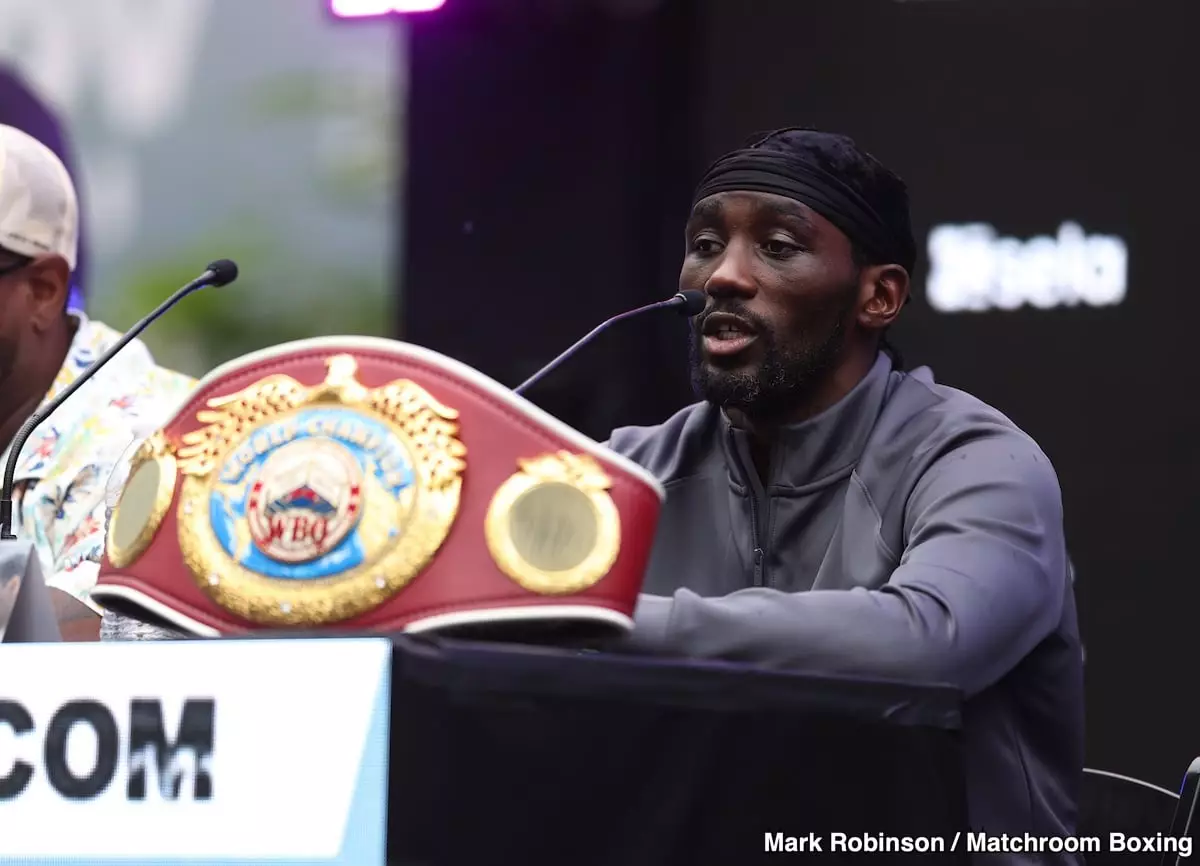In the world of boxing, rivalries often extend beyond the ring, and recent comments from Canelo Alvarez about Terence Crawford have sparked considerable dialogue regarding Crawford’s career accomplishments. Alvarez has publicly questioned the legitimacy of Crawford’s place among the elite fighters of this era, asserting that Crawford has “only beaten one good fighter.” This remark has not only stirred anger in Crawford but has also challenged boxing fans to reevaluate careers defined by both perception and achievement. As the debate unfolds, it raises key questions about what constitutes a fighter’s legacy and how promotional strategies can shape that narrative.
Terence Crawford boasts an impressive professional record of 41-0, with 31 of those victories coming by knockout. However, a deeper analysis of his opponents reveals a troubling pattern. Critics argue that Crawford’s ascent through the boxing ranks has largely come at the expense of fighting lower-tier opponents instead of elite or aforementioned “A-level” fighters. Alvarez’s assertion, focusing specifically on Crawford’s best-known victory against a compromised Errol Spence, underscores a broader issue of career accomplishments in boxing—how much weight should be given to the caliber of opponents faced?
It is not uncommon for promotional efforts to create the illusion of a fighter’s dominance. Historically, Crawford has been positioned as the favorite in nearly every bout, often facing opponents who, at various points in their careers, have been deemed more as stepping stones than formidable challenges. This begs the question: is he truly a product of his talent, or has he benefitted from calculated matchmaking?
When examining the fighters that Crawford has faced, one cannot help but notice a repetitive narrative—an array of opponents who, while capable in their own right, do not carry the same historical weight or legacy as those faced by other champions. Spence, while a significant name, was not at his peak when they fought, leading many to question the legitimacy of that victory. Similarly, other names on Crawford’s resume often lack the credentials that would solidify a truly storied career.
This concern is compounded by his apparent reluctance to pursue matchups against rising stars or established talents in higher weight classes, such as Jaron Ennis or those in the 154- and 168-pound divisions. If Crawford genuinely aimed to assert his place among the sport’s greats, one might argue he should actively seek challenges that could bolster his credentials rather than move cautiously to maintain an undefeated record.
Canelo Alvarez’s critiques of Crawford do more than just ruffle feathers—they offer Crawford an invitation to step up his game. There’s an opportunity for Crawford to reshape perceptions by engaging in high-stakes bouts rather than passively awaiting big fights based on reputation alone. The argument is not merely about protecting a record; it’s about the essence of competition—the pursuit of greatness often requires taking risks and facing the best available opponents, regardless of the potential for loss.
Crawford’s response to Alvarez showcases a defensive posture that suggests a reluctance to confront the challenging truths about his career. While he may take pride in his ability to neutralize opponents, it is questionable whether those victories substantiate his claims of greatness when the criteria for greatness itself are under scrutiny.
As discussions surrounding Crawford’s career evolve, one thing becomes increasingly clear—legacy in boxing is not merely about wins and losses but is significantly defined by the veracity of the challenges faced in the ring. Canelo’s comments resonate because they highlight a fundamental truth: the measurement of a fighter extends far beyond numerical records. For Terence Crawford, the current era presents a crossroads—a chance to embrace the challenges that lie ahead, potentially redefining his career narrative in the process.
Regardless of personal feelings towards the issue, it is essential for athletes to acknowledge their legacies are often molded in the face of adversity. The call to action is not simply to defend achievements but to pursue greatness with an open heart and an unyielding spirit.


Leave a Reply